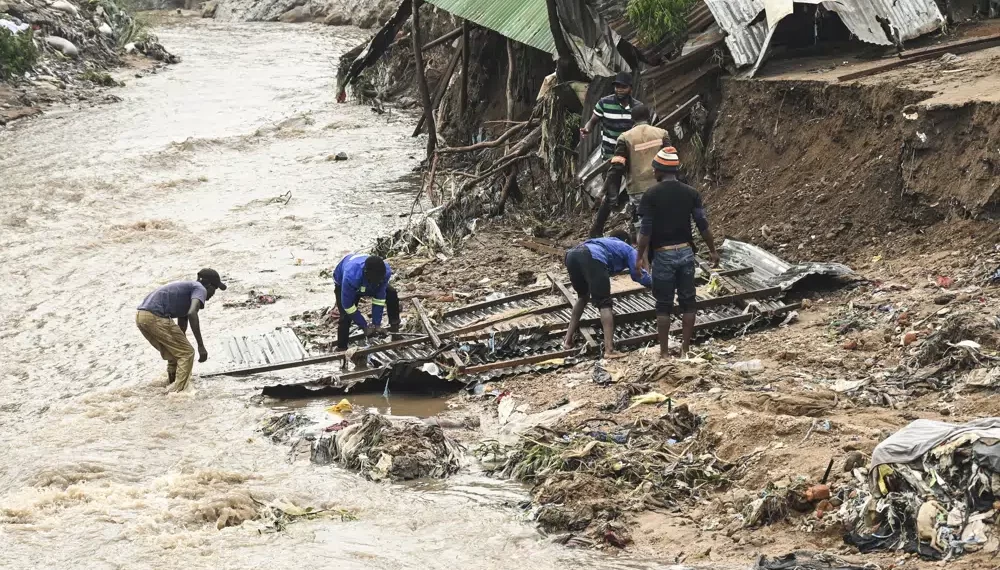According to a report released by the United Nations on Wednesday, 15 March 2023, African countries are spending between 2% and 9% of their budgets to respond to extreme weather events such as devastating cyclones, floods and droughts.
A committee of experts shared the findings at the annual U.N. conference of African Ministers of Finance and Economic Planning in Addis Ababa, Ethiopia.
Antonio Pedro, the acting Executive Secretary of the U.N. Economic Commission for Africa, disclosed, “Climate change is having a devastating impact on Africa’s economies, and the situation is expected to worsen in the coming years.”
The UN report noted that climate change, the war in Ukraine and a global economic slowdown have been identified as key factors that have led to Africa’s economic decline from a growth of 4.6% in 2021 to just 3.6% in 2022.
The meeting comes as extreme weather conditions are crippling parts of the continent. A punishing cyclone in Malawi and Mozambique has so far claimed more than 225 lives, displaced over 100,000 people and destroyed infrastructure and property. The cyclone, named Cyclone Freddy, has barreled through Mozambique and Malawi since late last week.

Kim Yi Dionne, a political scientist at the University of California Riverside, opined, “Even rich countries that are advanced democracies would have been no match for the level of destruction this cyclone has brought.” Freddy has accumulated more energy over its journey across the Indian Ocean than an entire U.S. hurricane season.
Yi Dionne added that the scale of damage is huge despite Malawi’s disaster agency having prepared and planned “for the challenges that come with our contemporary climate crisis.”
Cyclone Freddy is set to move away from land later on Wednesday, 15 March 2023, which should bring some relief to southern African regions that have been affected by its torrential rain and powerful winds.
Also, in the east and Horn of Africa, a debilitating drought has put the region on the throes of a famine.
Africa contributes less than 4% of global greenhouse gas emissions despite being home to 17% of the world’s population.
Many nations have limited capabilities to deal with the impacts of climate change. Some estimates predict that the continent will need investments of over $3 trillion by 2030 to adequately adapt to climate change and curb emissions.
Climate Action Is Impossible Without Climate Finance
Nemera Gebeyehu Mamo, Ethiopia’s Planning Minister said, “Climate change has tremendous impacts in African economies and climate action is impossible without climate finance.”
“Leveraging climate finance can fight poverty and inequality in Africa,” the Minister added.
A pledge by rich nations to provide $100 billion a year in climate finance has not yet been fully met. According to an analysis by the Organization for Economic Cooperation and Development (OECD) last year, richer countries failed to keep a $100 billion-a-year pledge to developing nations to help them achieve their climate goals.
A number of people believe that after decades of unmet promises, it is unlikely that richer countries will start to step up. Last year, Godwell Nhamo, a climate research Professor at the University of South Africa, asserted, “They do not have the money. They are over-committed with issues such as Ukrainian crisis and that is why they have been unable to meet any of their pledges.”
“Africa should move on and find other sources of funding,” he iterated.
Antonio Pedro called on African countries to take matters into their own hands and raise funds by developing carbon credits, where companies and governments pay into reforestation schemes to offset their emissions.
“If we take advantage of our rainforests and develop our carbon markets, we could unleash an estimated $82 billion a year in value,” Pedro suggested, adding that it could create millions of jobs across the continent.
READ ALSO: Kwadaso Constituents Portend To Vote Skirt And Blouse, If Dr. Akoto Is Elected NPP Flagbearer



















